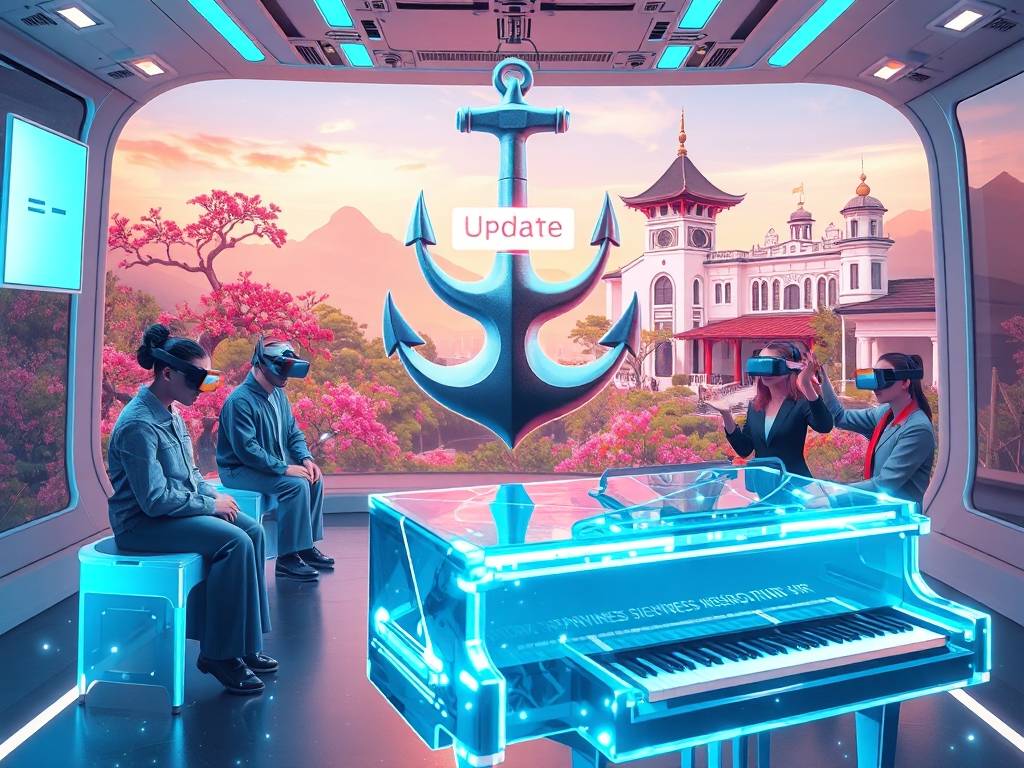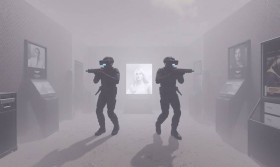Beyond the Grudge: How "Forgiveness Simulator VR" Pardon Missions Are Redefining Empathy in Gaming
The virtual reality landscape is often a theater of the extreme. We scale impossible mountains, battle armies of fantastical beasts, and pilot starships through hostile galaxies. But what if the most profound challenge a VR game could offer wasn't physical, but emotional? This is the exact premise that captivated audiences with the initial release of Forgiveness Simulator VR, a title that dared to make empathy its core mechanic. Now, with its groundbreaking "Pardon Missions" update, the experience has evolved from a compelling proof-of-concept into a truly transformative tool for emotional intelligence and personal growth.
Gone are the days of abstract, nameless entities. The Pardon Missions update introduces a new tier of deeply narrative-driven scenarios, each one a self-contained story of pain, misunderstanding, and the arduous path toward reconciliation. Players are no longer simply "forgiving"; they are actively engaging in the process of granting pardon—a conscious, willful act of releasing someone from a debt of wrong, even when the hurt remains.

The Architecture of an Apology
One of the update's most lauded features is the "Echo Chamber." Before a Pardon Mission begins, players enter a memory-locked space where they can safely experience the pivotal moment of transgression from multiple perspectives. In the mission "The Silent Partner," you don't just remember your business partner's betrayal that cost you your company. You inhabit their body in the days leading up to the decision, feeling the immense pressure of their hidden debt, the terrifying fear for their family's security, and the paralyzing shame that made honesty impossible. This isn't about excusing the action; it's about understanding the human context behind it. The VR medium is uniquely suited for this, leveraging embodied cognition to make empathy a physical, not just intellectual, experience.
The update also introduces the "Unspoken Dialogue" system. Using advanced, natural language processing AI, characters now respond not just to predefined dialogue trees, but to the player's tone, cadence, and chosen words during crucial conversations. A shouted "I forgive you!" born of frustration will be met with skepticism and pain. A quiet, hesitant "I... I think I understand why you did it" can open a door that seemed permanently sealed. This system forces authenticity. You cannot button-mash your way through forgiveness; you must genuinely mean it, or the simulation—and the character—will see through the facade.
New Mission Spotlight: "The Unseen Portrait"
A standout mission from the update is "The Unseen Portrait." Players assume the role of Alex, a struggling artist who was deeply scarred by their art critic mentor, Aris, who publicly eviscerated their debut exhibition a decade prior, crushing their confidence and career.
The mission begins in Alex's sparse apartment. The goal is not to confront Aris immediately, but to first reconstruct the past. Using a "Memory Brush" tool, players must physically paint the lost artwork from that exhibition, stroke by stroke, reliving the passion and vulnerability that went into it. Next, they visit a digital archive of Aris's reviews, not just of their work, but of others. Here, they discover a pattern: Aris saved his most brutal critiques for the artists he believed had the most potential, a misguided attempt to "forge them in fire."
The final confrontation takes place in a virtual reconstruction of the gallery. Aris, now an old and frail man, is present as a digital ghost. The conversation is tense. The Unspoken Dialogue system is in full effect. If the player attacks, Aris defends his methods with brittle arrogance. But if the player articulates their pain and then references the critiques of other promising artists, Aris's defenses crumble. He confesses his own failed artistic career and his jealousy of the raw talent he saw in Alex. The mission’s success isn't marked by a trophy, but by the option to collaboratively paint a new, unseen portrait with Aris, symbolizing a fractured but forward-moving relationship.
The Science of Letting Go
The "Pardon Missions" update is fascinating not just as a game, but as a potential therapeutic instrument. Studies on VR for exposure therapy and empathy training have shown promising results. This update takes it a step further by gamifying the intricate stages of forgiveness outlined by psychologists: acknowledging the hurt, understanding the context, and making the conscious choice to release the grievance.

Players anecdotally report decreased feelings of anger and anxiety related to their own real-world grievances after completing sessions. The safe, controlled environment of VR allows them to practice a profoundly difficult human interaction without real-world consequences, building a sort of "muscle memory" for empathy and reconciliation.
A New Genre is Born
ForgivenessSimulator #PardonMissions #EmpathyTech #InnovativeVR
The Pardon Missions update solidifies Forgiveness Simulator VR as a pioneer in a brand-new genre: Emotional Process Simulators. It moves beyond entertainment into the realm of meaningful experience. It proves that VR's greatest power might not be in making us feel powerful, but in making us feel connected, understood, and capable of profound human change. It challenges the very definition of what a game can be, asking not "can you win?" but "can you heal?" In a world often defined by conflict and hardened grudges, this virtual journey to pardon might be one of the most relevant and important adventures available today.


















